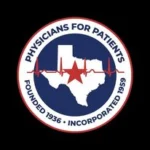Office-Based Anesthesia Rules

Each physician who provides anesthesia services or performs a procedure for which anesthesia services are provided in an outpatient setting, including the use of analgesics and anxiolytics, must register and pay a fee to the Texas Medical Board. The current fee for office-based anesthesia is a total of $210, per physician.
In addition, each physician who registers with the TMB for office-based anesthesia, or OBA, must identify what level of anesthesia services are provided at each practice site, with some exception for anesthesiologists.
Registration for OBA will be combined with the physician biennial registration. If you need to register to provide OBA services between registrations, please contact the Registration Department, for the proper forms.
Please visit Chapter 173 in the Board Rules for the complete regulations.

Inspections of registered OBA locations in Texas.
In order that we may ensure compliance with Board Rule 173 regarding the provision of anesthesia services in outpatient settings, the Board implemented, starting January 2014, a program to inspect registered OBA locations in Texas.
The Board will provide at least 5 days’ notice prior to inspection. At, or prior to, the time of inspection each physician who has registered an OBA location will be required to provide to the information requested by the Board. Click here for a general OBA Inspection Checklist. Please do not submit any documentation at this time.
For the complete and most current information, please visit the Texas Medical Board’s Office-Based Anesthesia page: https://www.tmb.state.tx.us/apply-renew/physician/additional-practice-topics-physicians
For questions related to Office Based Anesthesia, please reach out to info@tsa.org and include “Office Based Anesthesia” in the subject line of the email, thank you.
TSA Facebook Feed
No more posts
TSA Instagram Feed
TSA Twitter Feed
February Committee Chair Spotlight: Dr. Michael P. Hofkamp, MD, FASA
Currently Chair of the Education Committee.
The mission of the TSA Education Committee is to facilitate high quality educational content for our members. While our annual meeting has traditionally been a
TSA Upcoming Events





